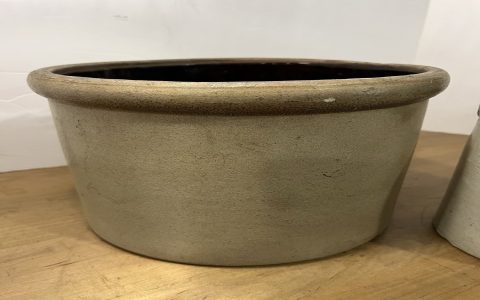Finding quality stoneware crocks at budget-friendly prices requires strategic sourcing and smart shopping. Here's how to secure affordable options without sacrificing essential functionality.
Uncover Hidden Bargains: Sourcing Channels
- Explore Auctions: Estate sales, farm auctions, and local liquidation events often feature vintage and unused crocks priced significantly below retail.
- Monitor Online Marketplaces: Regularly check listings on classified ads platforms. Filter by "local pickup" to avoid shipping costs and negotiate deals.
- Visit Restaurant Supply Outlets: Some stores sell smaller-sized crocks (often without lids) at lower prices, particularly factory seconds with minor cosmetic flaws.
- Connect with Distributors: Inquire about closeouts, discontinued lines, or slightly damaged stock directly from wholesalers or manufacturers.
Maximize Value: Selection Considerations
- Assess Imperfections: Chips on the rim or hairline cracks inside are major concerns. Superficial glaze scratches or kiln marks on the exterior often don't affect function and offer steep discounts.
- Consider Lid Replacement: Crocks sold without original lids are cheaper. Wooden boards cut to size provide an affordable alternative for fermentation weights.
- Focus on Core Needs: Prioritize food-safe glazes, structural integrity, and appropriate size over aesthetic perfection or specific brand names.
- Opt for Modest Sizes: Large, multi-gallon crocks command premium prices. Standard 1-3 gallon sizes are more commonly found at bargain rates.
Negotiate Like a Pro
- Buy in Quantity: Sellers are often willing to discount prices significantly for multiple units purchased at once. Negotiate pallet pricing with distributors.
- Offer Cash for Bulk Pickups: Cash deals and eliminating seller shipping hassle can lead to better prices, especially with private sellers.
- Time Your Purchase: Check listings frequently; sellers motivated by space constraints or quick sales are more open to offers.
Affordable stoneware crocks are accessible through persistent searching, critical inspection of minor flaws, leveraging bulk deals, and exploring less conventional sourcing avenues.












